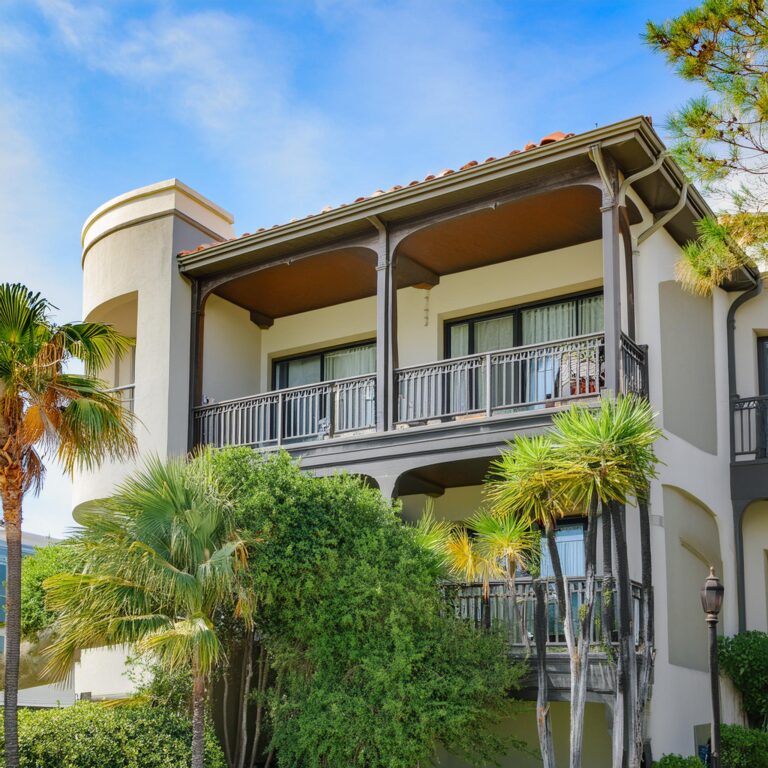What Does SB721 Mean In California?

Table of Contents
What Does SB721 Mean In California?
SB721 Balcony Inspections Reports & Structural Engineer Assessments
Building Department Oversight & Compliance
Repairs Required & Safety Liens
Impact On Property Owners & Multifamily Properties
Senate Bill 721 (SB721) emerged in response to a series of tragic incidents involving the collapse of balconies in California, resulting in injuries and fatalities. These incidents drew attention to the potential risks associated with exterior elevated elements (EEE) in multifamily properties, prompting calls for legislative action to address safety concerns. In 2015, a balcony collapse in Berkeley, California, claimed the lives of six young people and injured several others, sparking public outrage and highlighting the need for stricter regulations to prevent similar tragedies.
In California, the safety and integrity of balconies, decks, and stairways in multifamily properties have come under heightened scrutiny since the passing of Senate Bill 721. This legislation mandates rigorous inspections and repairs of exterior elevated elements (EEE) to prevent potential hazards and ensure the well-being of residents. Effective January 1, 2025, SB 721 imposes crucial obligations on property owners, and building owners, aiming to address structural vulnerabilities and enhance safety standards.
Contact DrBalcony for a professional inspection!
Ensure the safety of your balcony and living space with DrBalcony – We’re a Tech Engineering firm that specializes in California SB326 & SB721 balcony inspections. Over 300+ completed projects in California.
Request A Free EstimateClick To Call
SB721 Balcony Inspections Reports & Structural Engineer Assessments
SB721 inspections play a crucial role in ensuring the safety and structural integrity of balconies, decks, and other elevated elements within multifamily properties. To guarantee thorough assessments, qualified structural engineers are tasked with conducting these inspections. These professionals possess the expertise and knowledge necessary to evaluate the condition of these elevated structures effectively.
Their balcony inspection process involves a meticulous examination aimed at identifying any signs of deterioration or potential risks that could compromise the safety of residents. By documenting their findings in detailed inspection reports, these engineers provide valuable insights into the overall health and stability of the building’s elevated elements. These reports serve as essential tools for property owners and building managers, offering a clear understanding of any issues that may require attention or repairs to maintain the structural integrity of the property.
Building Department Oversight & Compliance

This specific Senate bill imposes stringent requirements for compliance with its inspection mandates. Building departments are tasked with the responsibility of ensuring that property owners adhere strictly to these regulations. To demonstrate compliance with SB721, property owners are obligated to submit comprehensive inspection reports to the building department.
These reports serve as tangible evidence of the property’s adherence to the law’s provisions regarding safety inspections. Property owners must fulfill this obligation punctually, as failure to comply with SB721 can lead to severe penalties and legal consequences. This underscores the significance of conducting timely inspections and promptly addressing any issues or repairs necessary to uphold safety standards and comply with the law’s requirements.
Repairs Required & Safety Liens
When inspection reports uncover the necessity for repairs, property owners are mandated to swiftly attend to any identified issues. To ensure the structural integrity and safety of elevated elements, repairs required under SB 721 must be conducted by qualified professionals.
Furthermore, neglecting necessary repairs can result in safety liens being imposed on the property. These safety liens serve as an additional incentive for property owners to prioritize timely maintenance and compliance with the law, reinforcing the importance of promptly addressing any structural concerns identified during inspections.

Impact On Property Owners & Multifamily Properties
The SB721 California law carries significant implications for property owners, especially those who own multifamily properties with balconies, decks, or stairways. Compliance with this legislation requires property owners to adopt a proactive stance toward inspections and repairs. This proactive approach prioritizes the safety of residents and aims to minimize potential liabilities associated with structural hazards. Adhering to the SB721 balcony law in California may involve additional expenses for property owners initially, but it is important to recognize the long-term benefits that come with enhanced safety and reduced risks.
Investing in maintaining the structural integrity of buildings not only ensures the well-being of occupants but also contributes to the overall sustainability and longevity of the property. By prioritizing safety measures and implementing necessary repairs following SB721, property owners can mitigate the likelihood of accidents or structural failures, thereby safeguarding both their investment and the welfare of those who reside in their properties.
Contact DrBalcony for a professional inspection!
Request A Free EstimateClick To Call
Conclusion
Senate Bill 721 (SB721) stands as a crucial measure aimed at enhancing safety standards and minimizing risks linked to exterior elevated elements in multifamily properties across California. This legislation marks a significant stride forward in safeguarding residents and prolonging the lifespan of buildings. By mandating frequent inspections, expediting necessary repairs, and enforcing strict adherence to regulations, an inspection service like DrBalcony can help owners and property managers navigate this type of bill SB721.
Through cohesive collaboration among property owners, structural engineers, and building departments, SB721 fosters a culture centered on proactive maintenance and accountability. This collective effort ultimately leads to the enhancement of safety measures and the overall well-being of communities statewide.
FAQ Section: Top Questions & Answers
Q1: Who is responsible for conducting inspections under SB721?
Qualified structural engineers are responsible for conducting inspections under SB721. These professionals possess the expertise and knowledge required to assess the condition of balconies, decks, and other exterior elevated elements in multifamily properties.
Their role is crucial in identifying any signs of deterioration or potential risks that could compromise the safety of residents. By entrusting inspections to qualified structural engineers, SB721 ensures thorough assessments and adherence to safety standards, ultimately aiming to prevent hazards and promote the well-being of occupants.
Q2: What types of properties does SB721 apply to?
SB721 pertains to multifamily properties, which include residential buildings in California with three or more units, featuring balconies, decks, or stairways. This legislation applies to buildings where multiple residential units exist, ensuring that safety standards are upheld for occupants residing in such structures.
Whether it’s an apartment complex or a condominium, SB721 encompasses properties with shared living spaces and elevated elements, aiming to mitigate risks and safeguard residents from potential hazards associated with these features.
Q3: How does SB721 aim to improve safety standards?
SB721 endeavors to enhance safety standards through several measures. These include mandating regular inspections, ensuring prompt repairs, and fostering adherence to strict regulations. By implementing these provisions, SB721 seeks to protect residents and prolong the lifespan of buildings.
Through the enforcement of regular inspections, any potential hazards can be identified and addressed promptly. Timely repairs help maintain the structural integrity of the property, reducing the risk of accidents or failures.
Q4: What happens if property owners fail to comply with SB721?
Non-compliance with SB721 carries serious consequences, including substantial penalties and legal ramifications. Property owners risk facing safety liens on their properties if they fail to promptly address necessary repairs as mandated by the legislation. These safety liens serve as a financial incentive for property owners to prioritize timely maintenance and uphold safety standards outlined in SB721.
By ensuring compliance with the law’s requirements, property owners can mitigate potential liabilities and safeguard the well-being of residents, thereby promoting a safer living environment and protecting their investment in the property.
Q5: How does SB721 impact multifamily property owners?
SB721 carries significant implications for multifamily property owners, necessitating a proactive stance toward inspections and repairs. Although SB721 inspection costs entail initial expenses, the long-term advantages are substantial. Enhanced safety measures resulting from SB721 compliance reduce the risks of structural failures, safeguarding residents’ well-being.
By prioritizing proactive maintenance, property owners not only mitigate potential hazards but also protect their investment in the property. Ultimately, SB721 promotes a safer living environment, ensuring the longevity of multifamily properties and fostering peace of mind for both owners and residents alike.
